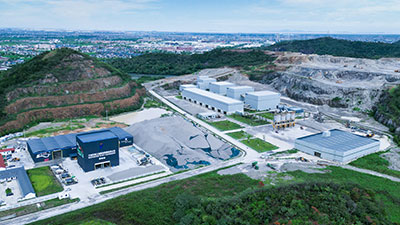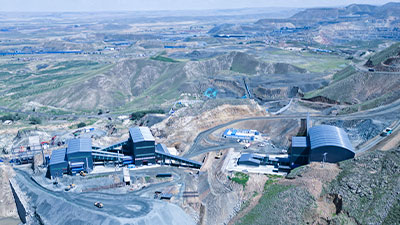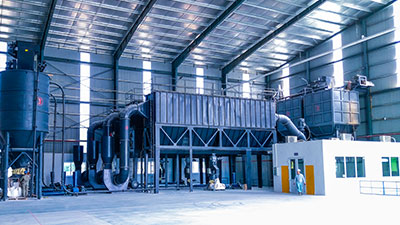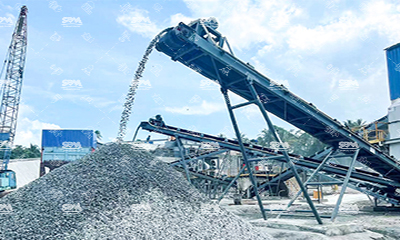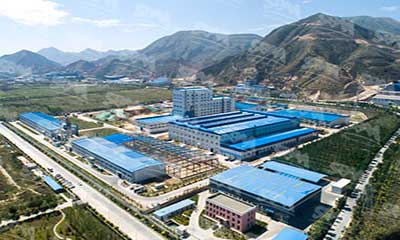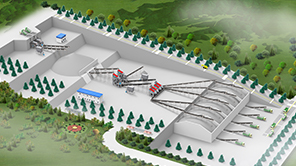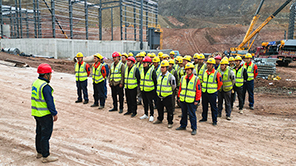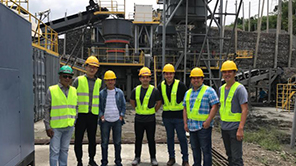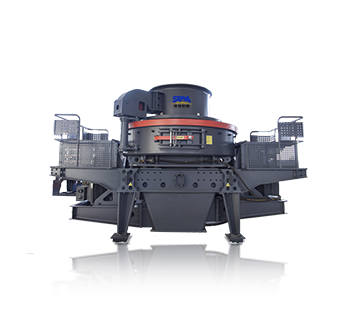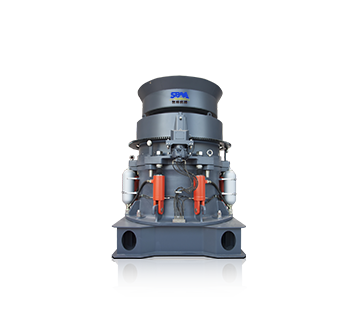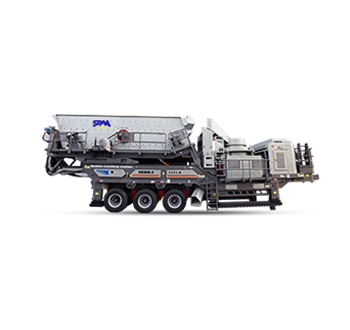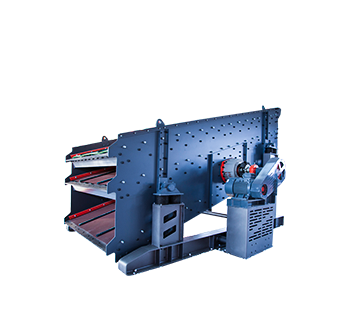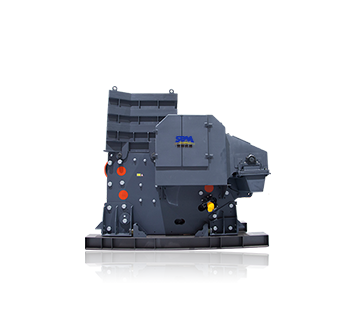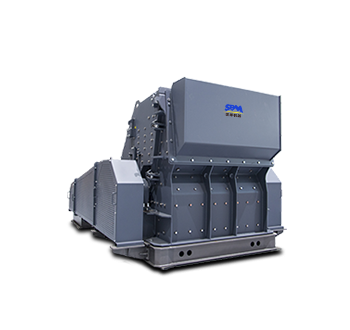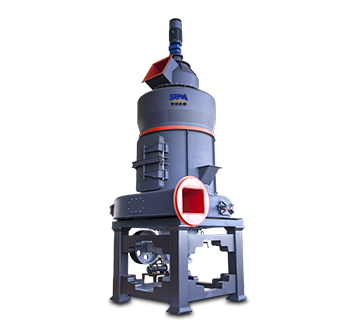Summary:Discover why Kenyan quarries are rapidly adopting mobile crushers over traditional stationary plants. Explore the benefits—cost efficiency, environmental compliance, and flexibility—driving this shift in Kenya's booming construction sector.
Quarrying is a cornerstone of Kenya’s construction and infrastructure sectors, supplying essential materials such as aggregates, ballast, and sand for roads, buildings, and other projects. Traditionally, stationary crushing plants have dominated the landscape, but recent years have seen a rapid adoption of mobile crushing technology. This shift is not merely a matter of technological advancement; it is driven by a complex interplay of market demands, regulatory changes, environmental considerations, and the need for operational efficiency.
Through detailed analysis and real-world case studies, we provide a comprehensive understanding of why mobile crusher is becoming the preferred choice for Kenyan quarries and what this means for the future of the industry.

2. Background: The Kenyan Quarrying Industry
2.1. Overview of Quarrying in Kenya
Kenya’s quarrying sector is diverse, ranging from small-scale artisanal operations to large commercial quarries. The primary products include:
- Crushed stone (ballast, aggregates)
- Sand
- Building blocks
- Murram (laterite)
These materials are vital for the country’s booming construction industry, which is fueled by rapid urbanization, population growth, and government infrastructure projects such as roads, railways, and affordable housing.
2.2. Traditional Crushing Methods
Historically, most Kenyan quarries have relied on stationary crushing plants. These consist of fixed jaw crushers, cone crushers, and screens, often installed on concrete foundations. While effective, these systems have several limitations:
- High initial capital expenditure
- Limited flexibility in site relocation
- Lengthy installation and commissioning times
- High logistical costs for transporting raw material to the plant
3. The Rise of Mobile Crushers
3.1. What Are Mobile Crushers?
Mobile crushers are self-contained crushing units mounted on tracks or wheels. They can be easily transported and set up at different locations within a quarry or between sites. Key types include:
- Mobile jaw crusher
- Mobile cone crusher
- Mobile impact crusher
- Mobile screening plant
These machines are equipped with onboard power sources, conveyors, and control systems, enabling them to operate independently or as part of a mobile processing train.
3.2. Adoption Trends in Kenya
Over the past five years, there has been a noticeable increase in the number of mobile crushers operating in Kenyan quarries. Equipment suppliers report growing demand, and several high-profile projects have adopted mobile solutions.
4. Why Kenyan quarries are switching to mobile crusher
4.1 Geographical and Logistical Imperatives
Kenya’s quarries are often situated in remote, rugged terrains, far from urban centers and infrastructure hubs. Traditional stationary crushers require substantial upfront investment in infrastructure—such as permanent foundations, power supply systems, and access roads—which can be prohibitively expensive in remote areas. Mobile crushers, however, eliminate these barriers:
- Mobility and Accessibility: Track-mounted or wheeled mobile crushers can navigate rough terrain, reaching quarry sites that were previously inaccessible to fixed plants. For example, in counties like Kitui or Turkana, where quarries are located in hilly or arid regions, mobile units can be transported via trailers or self-propulsion, reducing reliance on extensive road networks.
- On-Site Processing: By crushing materials at the extraction point, mobile crushers eliminate the need to haul large volumes of raw rock over long distances. This reduces transportation costs (fuel, vehicle maintenance) and minimizes logistical bottlenecks, especially in areas with poor road infrastructure.
Case in Point
A quarry in Machakos County, which previously spent 20% of its operational budget on transporting raw materials to a stationary plant, reduced costs by 12% after switching to a mobile crusher. The unit’s ability to move within the quarry also allowed the company to exploit multiple deposit areas without relocating the entire setup.
4.2 Cost Efficiency and Flexibility
Mobile crushers offer the dual advantage of lower capital expenditure (CAPEX) and optimized operational expenditure (OPEX):
- Reduced Infrastructure Costs: Unlike stationary plants, mobile crushers require no permanent foundations or elaborate electrical systems. This reduces upfront costs by 30–50%, making them accessible to small and medium-sized enterprises (SMEs) that might struggle to finance traditional setups.
- Scalability: Mobile units can be deployed in phases, allowing operators to start with a single crusher and expand with additional modules (e.g., screening units, conveyors) as demand grows. This modular design aligns with Kenya’s fragmented quarrying sector, where many operators serve niche markets or seasonal projects.
- Fuel and Energy Savings: Modern mobile crushers often feature fuel-efficient engines or electric/hydraulic systems, reducing energy costs. For instance, a hydraulic mobile cone crusher can achieve the same output as a stationary unit while consuming 15–20% less energy.
4.3 Adapting to Dynamic Market Demands
Kenya’s construction industry is highly diversified, ranging from large-scale infrastructure projects (e.g., the Standard Gauge Railway) to small-town housing developments. Mobile crushers excel in meeting varied aggregate requirements:
- Quick Reprogramming: Mobile units can switch between crushing hard rock (e.g., granite for road bases) and softer materials (e.g., limestone for cement production) by adjusting settings like the crushing chamber size or replacing wear parts. This agility allows quarries to pivot between projects without lengthy downtime.
- On-Demand Production: For short-term projects, such as road repairs or rural construction, mobile crushers can be deployed temporarily, eliminating the need for permanent plants. This is particularly valuable in Kenya’s emerging counties, where infrastructure development is sporadic but growing.
Market Demand Statistics
- In 2023, Kenya’s aggregate demand reached 45 million tons, with 60% sourced from mobile crushing operations.
- Urban areas like Nairobi and Mombasa require high-quality, cubical aggregates for concrete, which mobile impact crushers can produce efficiently, while rural projects often need coarser materials for fill, achievable with mobile jaw crushers.
4.4 Environmental and Regulatory Compliance
Kenya’s National Environmental Management Authority (NEMA) has tightened regulations on dust emissions, noise pollution, and land degradation. Mobile crushers offer inherent environmental benefits:
- Reduced Ecological Footprint: By minimizing transportation, mobile units cut carbon emissions from haulage trucks. A study by the Kenya Quarrying Association found that mobile operations emit 25% less CO2 per ton of aggregate than stationary plants.
- Dust and Noise Control: Modern mobile crushers feature enclosed crushing chambers, dust suppression systems (e.g., water sprays), and soundproofing, making them more compliant with NEMA standards. This is critical in quarries near residential areas, such as those in Kiambu County.
- Restoration Ease: Mobile units leave minimal permanent infrastructure, simplifying land reclamation after quarrying activities, a requirement under Kenya’s environmental laws.
4.5 Technological Advancements and Local Innovation
The adoption of mobile crushers in Kenya is further driven by technological upgrades and local manufacturing adaptations:
- Smart Crushers: International brands like SBM and Terex now offer mobile units with IoT-enabled sensors, allowing real-time monitoring of performance (e.g., throughput, wear part lifespan) and predictive maintenance. This reduces downtime and enhances operational efficiency.
- Local Customization: Kenyan engineers have modified mobile crushers to handle the country’s specific materials, such as volcanic rock in the Rift Valley. For example, adding harder manganese steel liners to jaw crushers has extended their lifespan by 30% when processing abrasive basalts.
- Mobile vs. Semi-Mobile Solutions: While fully mobile crushers dominate small-scale operations, semi-mobile plants (which combine portability with higher capacity) are gaining traction in medium-sized quarries. These units can be disassembled and moved in sections, balancing flexibility with output.
Mobile crushers offer unmatched flexibility, lower operating costs, and improved environmental performance, making them the preferred choice for a wide range of applications.
As the industry continues to evolve, mobile crushers will play an increasingly important role in meeting Kenya’s construction and infrastructure needs.

